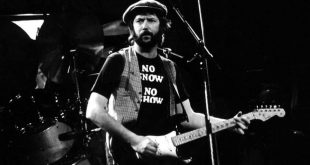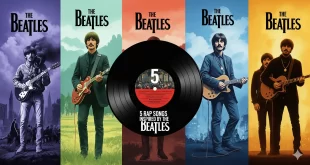For rock musicians, the spotlight often belongs to the frontman, the figure who commands the stage and captivates audiences. While Queen’s Freddie Mercury redefined what it meant to be a frontman, guitarist Brian May has repeatedly highlighted the artist he considered the ultimate bandleader: John Lennon.
Before Mercury joined Queen, the band existed as Smile, a power trio with Tim Staffold on vocals, May on guitar, and Roger Taylor on drums. While Mercury’s arrival transformed Queen into a legendary act, May had long admired Lennon from across England as he started cutting his teeth in the music world.
Lennon’s Evolution and Influence
Unlike the heavier rock of Led Zeppelin or The Rolling Stones, The Beatles captured the world with pop brilliance, and Lennon stood at their forefront. From biting wit in lyrics like Norwegian Wood to the playful absurdity of I Am the Walrus, May observed Lennon’s charisma and swagger as unparalleled.
Discussing Lennon with Classic Rock, May said:
“Lennon, from a frankly less-than-glamorous teenager with a bit of a chip on his shoulder, developed into the coolest guy on Earth. He was cool enough to write the greatest teen pop song ever, I Want to Hold Your Hand; to embrace psychedelia; to leave The Beatles when he felt it had all become a shallow game, and then to put his whole being into promoting peace in his solo work, producing the greatest, most daring and personally revealing solo albums ever made.”
May emphasized that Lennon’s genius could not be confined to a few hits. He cited classics such as Tomorrow Never Knows, Lucy in the Sky With Diamonds, I Am the Walrus, and Strawberry Fields Forever as transformative works that reshaped modern music.
Lennon’s Impact on Queen
Brian May saw Lennon’s influence reflected in Queen’s creative approach. Albums like A Night at the Opera exemplify this, with Bohemian Rhapsody echoing the experimental studio techniques and imaginative storytelling Lennon perfected on tracks like Strawberry Fields Forever.
In memory of Lennon’s passing, Queen composed Life is Real (Song For Lennon) on their Hot Space album, a heartfelt tribute to the late Beatle. May highlighted how Lennon’s daring artistry and charisma continued to inspire musicians long after his death, leaving an indelible mark on rock history.
The Legacy of John Lennon
From fronting The Beatles to exploring avant-garde solo projects and advocating for peace, Lennon combined musical genius with cultural impact. Brian May’s admiration underscores Lennon’s status not just as a performer but as a visionary whose work influenced entire generations of artists.
Even decades after Lennon’s death, May notes, the swagger, creativity, and fearless innovation he embodied remain evident in every note and lyric he left behind.
Conclusion
Brian May’s reflections remind us that John Lennon was more than a Beatle—he was a cultural icon, a fearless musician, and “the coolest guy on the planet.” Through his solo work, revolutionary Beatles tracks, and lasting influence on bands like Queen, Lennon’s legacy continues to resonate across the world of music.






